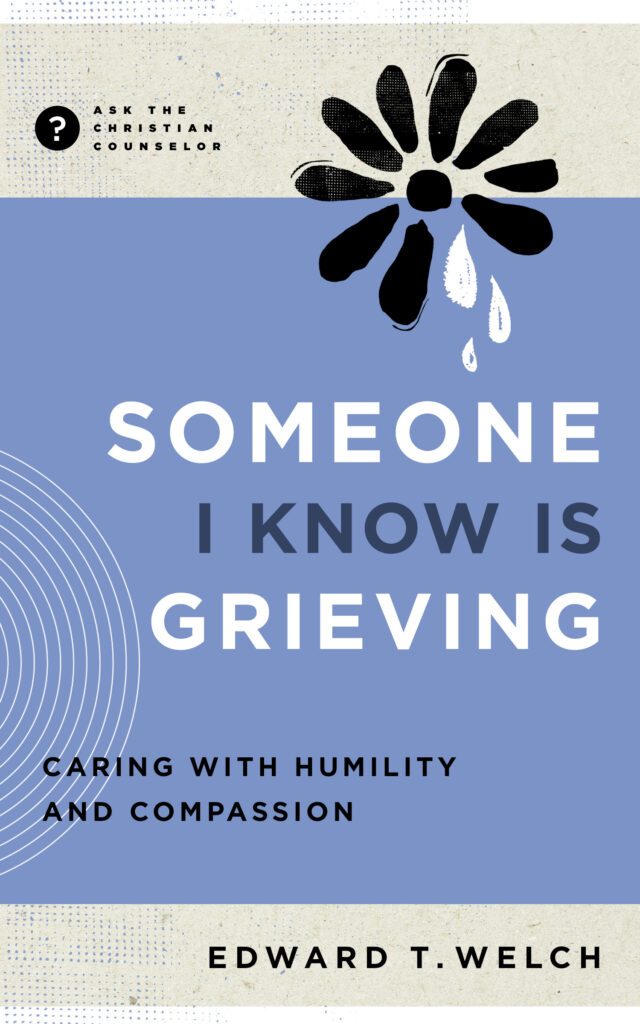People in the church often say foolish and hurtful words to those who are grieving.
- “If I were you . . . ”
- “At least you still have . . . ”
- “Just pray/read your Bible/keep praising the Lord . . . ”
- “What is God trying to teach you?”
Those last two don’t seem too bad. Prayer is good. But it’s the “just” that makes it difficult. Anytime we say “just,” we are consultants who are giving simplistic advice. In this case, we are also assuming that the grieving person doesn’t pray.
“What is God trying to teach you?” God is, indeed, doing something in us through our suffering, but this question suggests that we must figure out the mysterious and specific purposes of God, as though God is posing a riddle. Or, it follows the lead of Job’s comforters and suggests that we must find that particular sin that is causing the entire mess.
Those who hear these words might overlook the offense yet also resolve to never again share their hearts with the perpetrators. Others assume that the comments are representative of the culture of God’s people, i.e. “Christians should always be thankful and never complain.” Either way, we isolate those who already feel alone, and we misrepresent the kingdom of God.
How these words gained traction in the church is impossible to say because our God has taught us a different way. He invites us to speak to him with words Jesus himself used.
- “Why, O Lord, do you stand far away?” (Psalm 10:1)
- “My God, my God, why have you forsaken me?” (Psalm 22:1)
- “Why are you sleeping O Lord?” (Psalm 44:23)
- “Why do you cast my soul away?” (Psalm 88:14)
In response to these questions, the Lord usually says the equivalent of, “Please, tell me more.” You will never hear him minimize your suffering or toss out an impersonal bromide as he heads off to advise someone else. Instead, he is the compassionate and gracious God who has a particular attraction to those who need help.
How can we respond? We share words that accent compassion and humility.
Compassion imitates the compassion of Jesus Christ. It is moved by the grief of others. For example, “I am so sorry. My heart is heavy from what you are going through.” Anything that leans towards compassion will probably encourage.
Humility is the Lord’s call to all humanity. We walk before him “with all humility and gentleness” (Ephesians 4:2). This means that we listen to and partner with the grieving person rather than dispense our expertise. Humility might ask, “Here is a way I have been praying for you? What other ways can I pray?”
Notice how compassion and humility correct the perennial problem of giving advice to those who are troubled. A friend was going through a very difficult and serious physical struggle that eventually was the cause of his death. He got the word out to his contacts and friends: “Many of you have heard of my recent medical problems. It hasn’t been easy, but my family has been an amazing help and the medical team’s response has been skillful. Since I have such an expert team, I ask that you refrain from sending your advice on medical treatments.” The message went on to identify other ways that people could help. Within the next week he was flooded with texts, emails, books, and actual remedies, all imploring him to adopt their medical advice.
Someone I Know is Grieving
In Someone I Know Is Grieving, Edward T. Welch leans on his many years of counseling grieving people to help readers learn from their compassionate Savior how to respond to people’s sadness and hard times without advice or trying to “fix it,” but to instead hear their story, learn from others’ experiences, and depend on the Spirit for wisdom for what to say and do.






